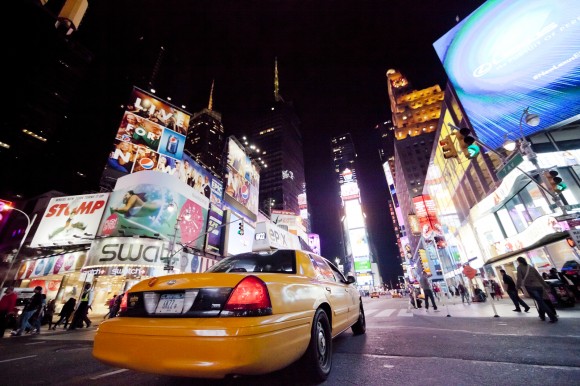It lasted all of five hours – and hit just the spot on New York’s power system to take out the lights in Times Square, force the evacuation of Madison Square Garden in the middle of a Jennifer Lopez concert and bring parts of the city’s subway system to a screeching halt.
The Saturday evening blackout on Consolidated Edison Inc.’s grid – extending from about Fifth Avenue to the Hudson River and from the 40s to 72nd Street – was so widespread that it took out much of Midtown, Hell’s Kitchen, Rockefeller Center and the lower reaches of Manhattan’s Upper West Side. Now ConEd, already under fire because of other mechanical breakdowns in recent years, is facing renewed calls to overhaul its network.
New York City Mayor Bill de Blasio cut short a presidential campaign trip to Iowa and Governor Andrew Cuomo went on television to demand answers from “Mr. ConEd” himself.
Cuomo, expressing frustration over what he described as repeated failures on ConEd’s system, said in an interview with ABC News that he was sending his “top power team” to investigate the incident. He noted that Saturday’s outage took hours to resolve when the utility had said it would take one to two. It struck at 6.47 p.m. Saturday, lasted until about midnight and affected almost 73,000 customers.
“If they don’t give me an answer quickly, I’m going to go to ConEd headquarters,” he said. “If I don’t get a firm answer forthwith, I’ll go speak to Mr. ConEd myself.”
De Blasio, meanwhile, called on city agencies to “get to the bottom” of the incident.
“We’re going to look at this very carefully, not only depend on Con Edison, but we’re going to make sure there’s a very careful review of what happened,” the mayor said on CNN’s “State of the Union” Sunday from Chicago. “We don’t ever want to see it happen again.”
The power failure struck on the anniversary of the historic 1977 blackout that led to widespread looting and other crimes across New York City. And it peeled back disparities between old technology and new: halted subways meant a $2.75 fare ballooned to a $57 Uber primed to surge pricing.
Other impacts of Saturday’s power failure:
All lanes of West 42nd Street to West 71st Street between the Hudson River to 5th Avenue in Manhattan were closed in both directions after the power failure took out traffic signals.
All Broadway theaters were closed except for the Winter Garden Theater, Nederlander Theatre and Lyceum Theatre, leading some performers to take their shows to the street.
Carnegie Hall was evacuated, and a choir set to perform onstage sang outside instead.
The New York Fire Department responded to reports of “numerous stuck elevators” that were occupied.
Digital billboards in Times Square went down, and some restaurants and businesses closed.
Just over six months ago, ConEd was facing an investigation after an electrical fire at a substation turned New York City’s night sky blue, temporarily disrupting flights and subway services. In July 2018, it was the subject of a probe after an asbestos-lined steam pipe ruptured in Manhattan’s Flatiron district. And a power failure in 2017 led to significant delays on the subway during a morning commute, triggering an investigation that cost the company hundreds of millions of dollars.
De Blasio on CNN didn’t directly answer a question about whether the grid is vulnerable, saying: “We haven’t had many instances like this in recent years, and that’s a very good thing.” ConEd said earlier on Saturday that it didn’t suspect the power failure was caused by an attack on its system.
Cuomo said Saturday’s outage appeared to have been caused by a substation explosion and fire that went on to affect four other substations. As of 11:30 a.m. in New York on Sunday, 162 customers across ConEd’s system were without power.
ConEd Chief Executive Officer John McAvoy told reporters late Saturday that the company would investigate the root cause of the event and “restore the system to a fully normal condition once we understand what exactly occurred.” He said the power failure didn’t appear to be weather-related. Hot weather typically sends power demand surging as people blast air conditioners.
When asked about reports of a fire in a manhole cover, he said it was “very unlikely” that such a blaze could cause “an incident of this scale.”
Topics New York
Was this article valuable?
Here are more articles you may enjoy.



 Florida Engineers: Winds Under 110 mph Simply Do Not Damage Concrete Tiles
Florida Engineers: Winds Under 110 mph Simply Do Not Damage Concrete Tiles  AI Needs Its Own Risk Class: Lockton Re
AI Needs Its Own Risk Class: Lockton Re  Insurify Starts App With ChatGPT to Allow Consumers to Shop for Insurance
Insurify Starts App With ChatGPT to Allow Consumers to Shop for Insurance  Florida Insurance Costs 14.5% Lower Than Without Reforms, Report Finds
Florida Insurance Costs 14.5% Lower Than Without Reforms, Report Finds 

